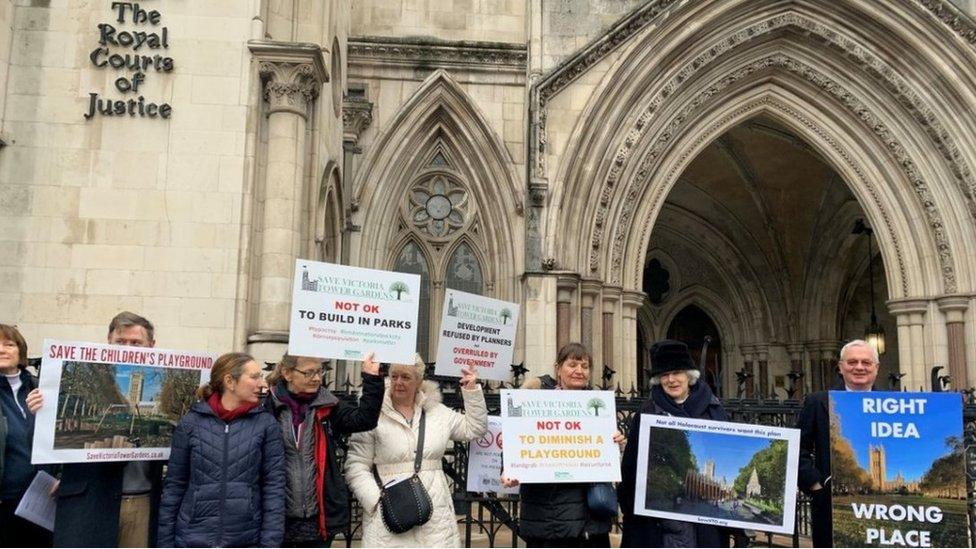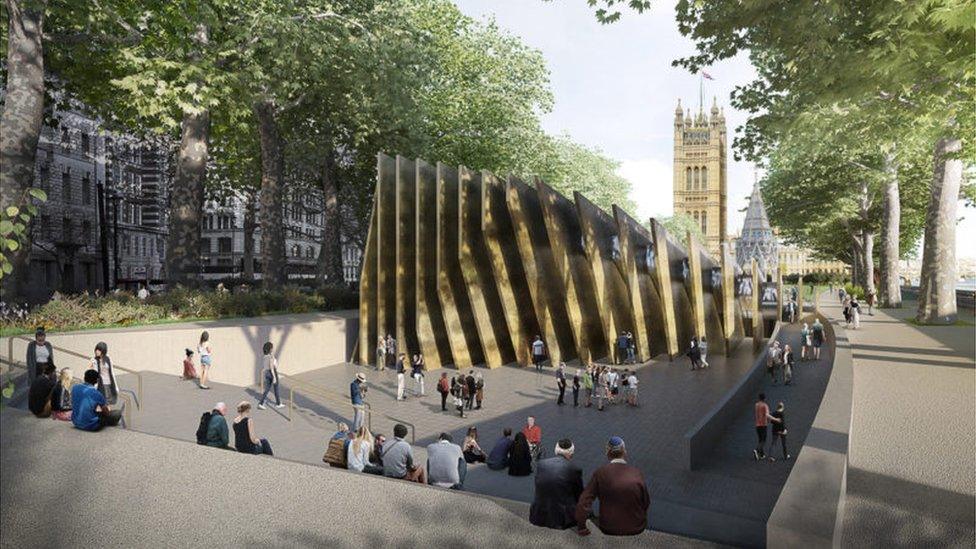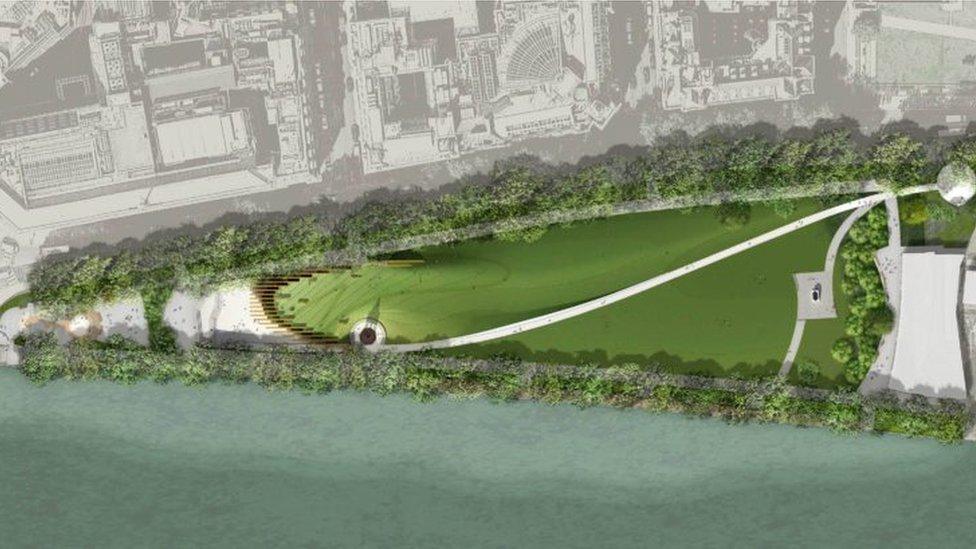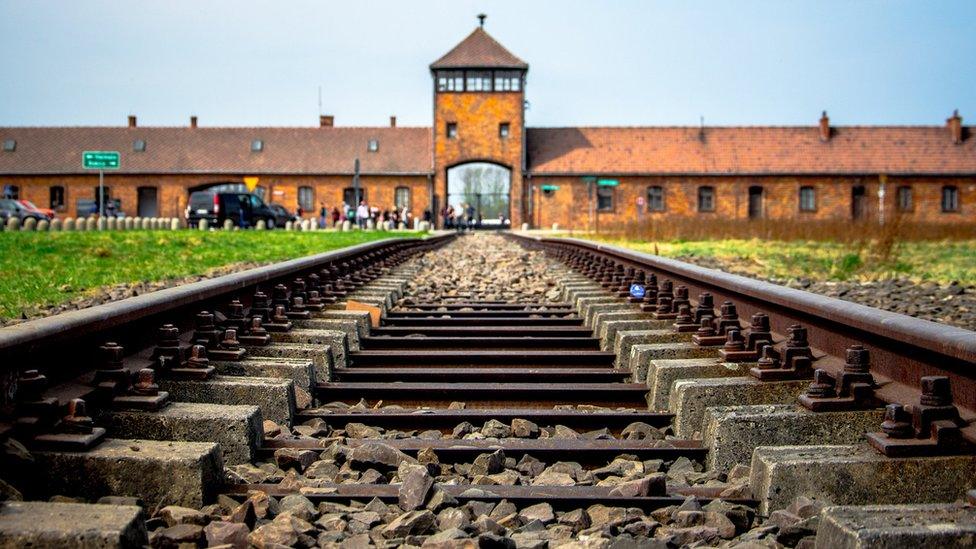Holocaust memorial: High Court challenge to monument outside Parliament begins
- Published

Protesters outside the Royal Courts of Justice, who want planning permission for the UK Holocaust Memorial to be revoked
A legal challenge over plans for a Holocaust memorial next to Parliament has started at the High Court.
Westminster Council initially refused permission for the monument, which would include 23 bronze fins and an underground learning centre.
But after an inquiry last year, the government overturned that decision and gave the go ahead to the scheme.
Now the London Historic Parks and Gardens Trust is challenging what it claims was a "flawed" process.

The memorial is to be built on the green next to the Palace of Westminster
The monument would be built in Victoria Tower Gardens, a small triangular Grade II-listed park next to Westminster Abbey and the Palace of Westminster.
Former Prime Minister David Cameron announced plans for the project in 2016 but it has been beset by disagreements over its meaning, public safety and possible harm to parkland.
At the High Court, Richard Drabble QC, representing the trust, said planning permission should be quashed due to the scheme being the "right idea, wrong place".
Mr Drabble said building the memorial would mean the diminution of existing listed monuments, including the Buxton Memorial Fountain commemorating the end of slavery, a Rodin sculpture, and the Emmeline and Christabel Pankhurst Memorial.
Alternative sites, including land by the Imperial War Museum in Lambeth, south London, had been rejected in what he alleged was an "unlawful approach".
Planning permission for the memorial was granted last July by then-planning minister Chris Pincher following a public inquiry.

The proposed plans feature 23 large bronze fin structures and an underground learning centre
However, Timothy Mould QC, for the government, said the trust's case should be dismissed, arguing there was "no error of law".
The memorial, due to open in 2024, is intended to be the focal point for national remembrance of the six million Jewish men, women and children murdered in the Holocaust and all other victims of Nazi persecution, along with providing a place for reflection on "subsequent genocides".
Some £75m of public money has already been put towards construction costs, which is due to be supplemented by £25m from charitable donations.
Related topics
- Published29 July 2021

- Published21 February 2019

- Published10 February 2019

- Published21 January
